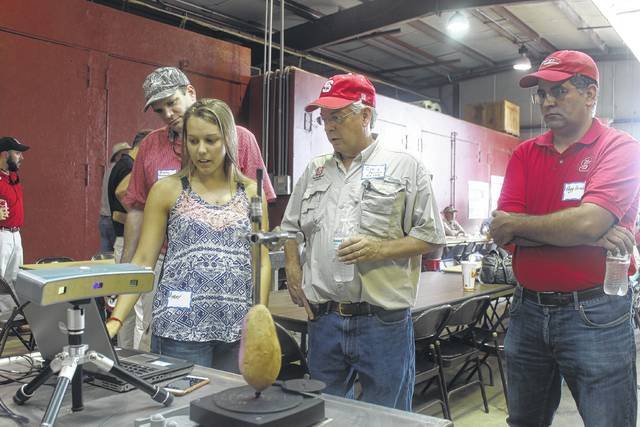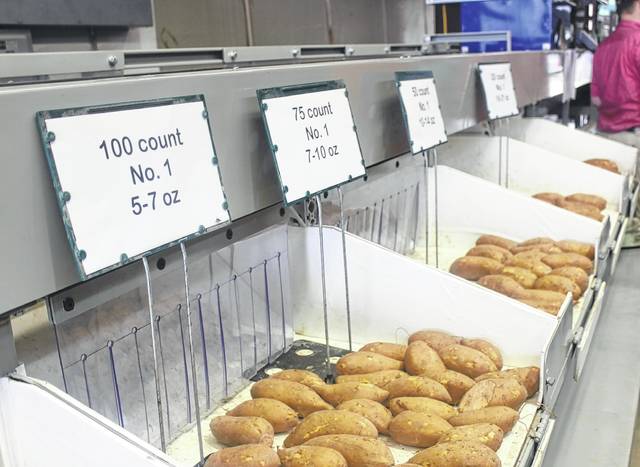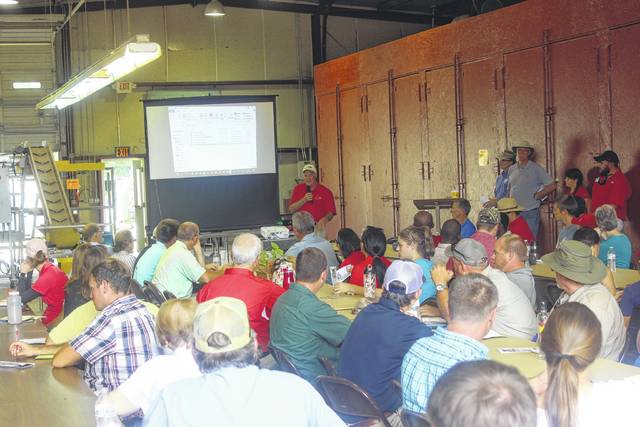After grabbing a sweet potato, Amber Tsirnikas used a laser scanner to evaluate its shape and size characteristics.
“Basically what my scanner does is get a 360-degree view of each potato and create an object file on the computer,” said Tsirnikas, a graduate research assistant.
Next, she takes measurements from the file such as diameter, volume and curvature. With assistance from her professor, Micheal Boyette, she introduced the digital image system to many people for North Carolina Sweet Potato Field Day at the Horticultural Crops Research Station in Clinton.
“I think it’s great that we can all come together and collaborate and see what ideas, new discoveries and technologies are out there,” she said about sweet potato research.
During the event, farmers and growers were able to learn about research at the station. Professors from North Carolina State University talked about how their research and goals to improve sweet potato production.
Reid Evans, assistant director of the N.C. Agricultural Research Service, was one of many contributors. Some of the sweet potato topics during the day-long event focused on nutrition, pest management field studies and production.
“Sweet potatoes have been a real success story for us,” Evans said. “There’s been a lot of things going on.”
Some of that progress includes the crop being exported overseas and continued growth in the state.
Dr. Alexander M. “Sandy” Stewart, director of the Research Stations in North Carolina, said the field day was a great opportunity for farmers to see the work of university professors.
“The research stations are such unique places and great places where you can test so many things,” Stewart said. “We can look at technology here before a farmer has to invest in it. It’s a program packed with a lot of really good information.”
Like many others, Stewart is proud of the accomplishments of farmers and their harvest of sweet potatoes.
“It’ really been a success story becuase North Carolina sweet potatoes are marketed all over the United States,” he said. “They’re marketed literally all over the world. It’s really been a success story for North Carolina to see this industry come together.
“A lot of that has to do with marketing and a lot of it has to do with research which is what you see here today,” Stewart said.
Stewart added that just about all of the varieties grown in North Carolina, came from N.C. State plant breeders.
“A lot of that work took place right here at this research station,” he said.
The event, which drew more than 100 people, was sponsored by the North Carolina State University’s College of Agricultural and Life Sciences, N.C. Agricultural Research Service and the N.C. Cooperative Extension Service; the N.C. Department of Agriculture & Consumer Services; and the North Carolina Sweet Potato Commission. A barbecue dinner was sponsored by McCain Foods.



